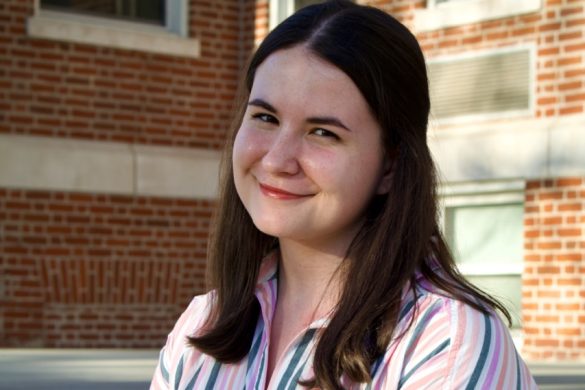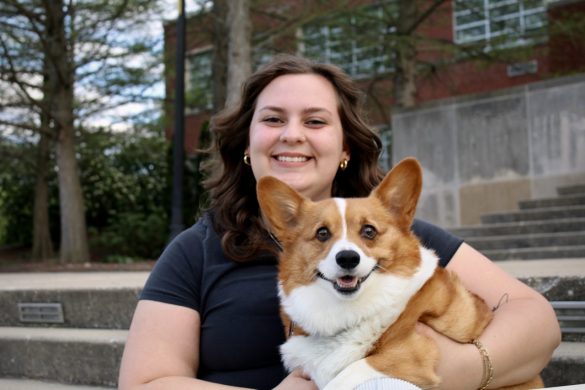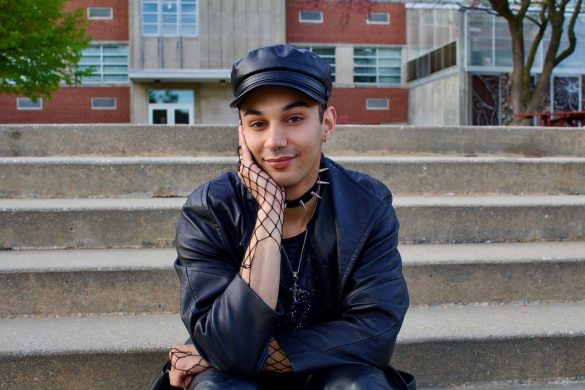Northwestern University quarterback Kain Colter compared the NCAA to a “dictatorship,” and then his team went on to do something that could potentially change the way collegiate sports are handled in the future.
At the end of January, Colter announced at a press conference in Chicago that the Northwestern football team was petitioning to create a union for collegiate athletes. However, unlike other such petitioners, these athletes were not asking to be paid.
This petition and potential union, advocated by the newly formed College Athletes Players Association, is asking the NCAA for financial coverage for sports-related medical expenses, concussion experts on the sidelines during games, a trust fund to help former athletes graduate and due process before a coach can strip a player of a scholarship for a rules violation.
I agree with some of these regulations. Concussions are something the NCAA has turned away from dealing with for years. Something must change, especially when football players are at the highest risk with a 75 percent chance for a concussion.
As far as medical expenses, the NCAA requires all student athletes to have personal insurance before training camps and the rest of the health care policies are mainly left up to the university. I agree that the NCAA should create more guidelines to decrease athlete confusion when it comes to varying university policies regarding health insurance.
The main problem with forming this union is the union itself. The players are petitioning the National Labor Relations Board, but in order to form a union, the players would have to be deemed employees of the university. This is something they believe they are.
Athletes are not university employees.
A 2011 CBS News Report shows that one in 16 (roughly 6 percent) of high school football players will play for a college team. Less than one out of 35 (3.1 percent) of basketball players will end up playing in college. These college athletes are lucky to have made the cut.
After being recruited, these athletes go on to have a decent amount—if not all—their tuition paid through scholarships. Division I players get their claim to fame through a lot of publicity and air-time.
Sure, they make money for their school and the NCAA. But if I were to publish how much I love being a student at the University of Indianapolis in the magazines the university sends to high school students, I would be promoting the university and encouraging others to attend, which could bring in more tuition money. That would not mean I am an employee and neither are the athletes.
These players also want a trust fund to help former players graduate. Recent NCAA reports have shown increases in the Division I graduation rates, but they still are not as high for those who do not participate in collegiate athletics. This is unfortunate, but why should we give these athletes a second chance?
College athletes are students of the university. They play for their own personal enjoyment and love of the sport, at least that is what we hope. But they also should realize that they are at a university to learn and pursue a career.
I know students who worked very hard in high school classes, athletics and other extracurricular activities so they too could earn scholarships toward school. They also must maintain a certain GPA to keep these scholarships.
I also know students who have done all of the preceding plus currently hold one or two jobs so they can pay for the rest of their tuition or other expenses while at school. If they were to slack off in school, would there be a trust fund to save them and let them have a chance to graduate?
Athletes are not better than any other student who goes to a university and should not be placed on a pedestal.
At the UIndy, our Division II athletes are held to a higher standard when it comes to their GPA. So, maybe some of the Division I schools need to work on the balance of academics and athletics.
Overall, I believe the Northwestern football players have good intentions. They see flaws in the NCAA’s current system, and they want to make sure they are not shortchanged. But this will be a long process before it reaches all universities.
The National Labor Relations Act applies only to private universities. Therefore, if Northwestern did succeed, it would be one of the 17 private schools that would be unionized. The dozens of other public schools would individually have to go by state law, and some states do not grant the right to unionize. How will only some universities and teams be in a union and others not? That would create an even bigger mess than the one in which these players already think they are.
The chaos that would ensue with state laws, future recruitment and new benefits for some but not others is cringe-worthy. But at least the players would then be recognized as employees, and the NCAA would not be a “dictator,” right?








